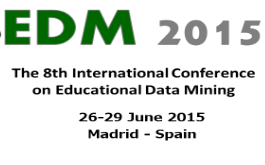There is an emerging trend in higher education for the adoption of massive open online courses (MOOCs). However, despite this interest in learning at scale, there has been limited work investigating the impact MOOCs can play on student learning. In this study, we adopt a novel approach, using language and discourse as a tool to explore its association with two established measures related to learning: traditional academic performance and social centrality. We demonstrate how characteristics of language diagnostically reveal the performance and social position of learners as they interact in a MOOC. We use Coh-Metrix, a theoretically grounded, computational linguistic modeling tool, to explore students’ forum postings across five potent discourse dimensions. Using a Social Network Analysis (SNA) methodology, we determine learners’ social centrality. Linear mixed-effect modeling is used for all other analyses to control for individual learner and text characteristics. The results indicate that learners performed significantly better when they engaged in more expository style discourse, with surface and deep level cohesive integration, abstract language, and simple syntactic structures. However, measures of social centrality revealed a different picture. Learners garnered a more significant and central position in their social network when they engaged with more narrative style discourse with less overlap between words and ideas, simpler syntactic structures and abstract words. Implications for further research and practice are discussed regarding the misalignment between these two learning-related outcomes.
Modeling learners' social centrality and performance through language and discourse
Conference paper
Open access
Published
Proceedings of the 8th International Conference on Education Data Mining (EDM2015), June 26-29, 2015, Madrid, Spain, Pages 250-258, Educational Data Mining Society, USA.
Publication year: 2015

